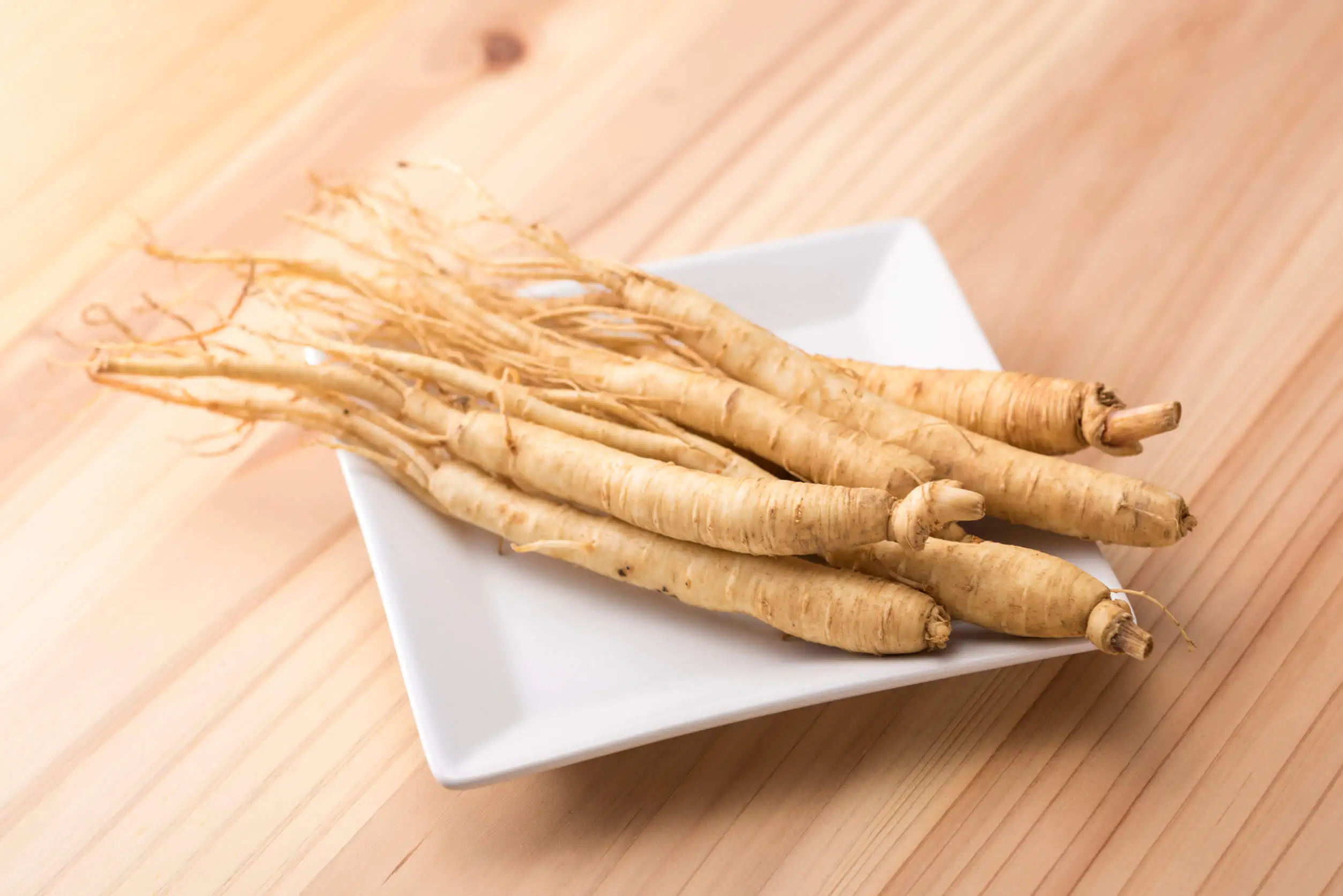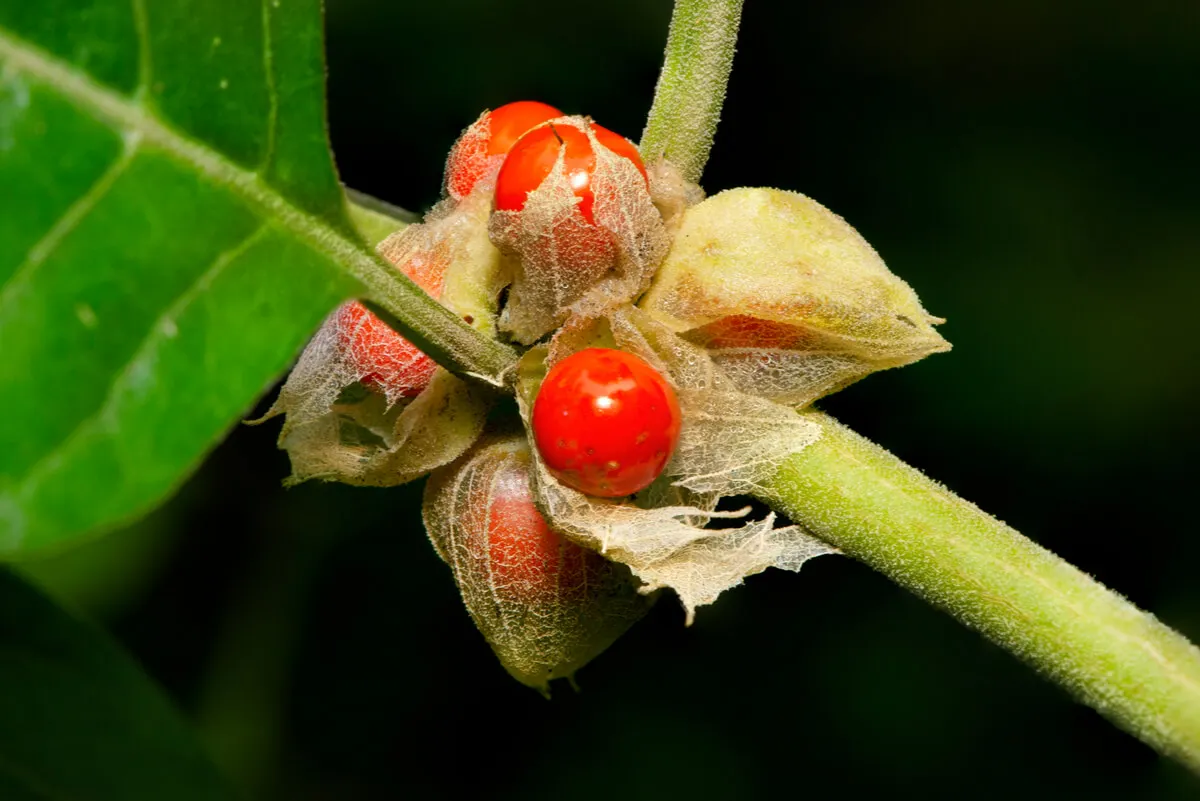7 Adaptogenic Plants to Combat Stress


Reviewed and approved by the pharmacist Franciele Rohor de Souza
The so-called “adaptogenic plants”, or simply “adaptogens”, have been attracting the attention of many consumers due to their properties that can combat the effects of stress. In particular, their components cause increased resistance to the physical and mental symptoms caused by increased cortisol.
In fact, a recent study reported in the journal Nutrients explains that these plants provide benefits in the treatment of chronic fatigue, cognitive impairment, and immune protection. Because of this, they’re considered a good supplement to promote wellness. So, what are the best choices? Let’s have a look?
The best adaptogenic plants to combat stress
Stress is defined as a state of physical or emotional tension. To be more precise, it’s the body’s reaction to situations that involve a significant challenge or effort.
In some ways, its occurrence can help to ward off dangerous situations or help us to respond appropriately. However, if it’s excessive, it can affect our health, not only on an emotional level, but also on an organic level.
And, as detailed in a review in EXCLI Journal, its persistent presence increases the production of hormones such as cortisol, associated with the risk of cardiovascular diseases, diabetes, and neurological problems, among others.
Hence the need to learn to manage stress correctly, especially if it tends to occur regularly. In order to do this, there are a wide variety of strategies, including adaptogenic plants.
Find out all about them with us today!
1. Korean ginseng
Korean ginseng (also called Chinese ginseng, Asian ginseng, or Panax ginseng) is one of the most popular adaptogenic plants in traditional medicine. It’s used both to combat stress and to increase energy levels.
In relation to this, research shared in the Journal of Ginseng Research reported that the plant stabilizes the functioning of the sympathetic nervous system and improves cognition in people with high levels of stress.
Meanwhile, another study shared in 2017 explains that this variety acts as a therapeutic agent against stress-induced diseases (diabetes, cardiovascular disorders, anxiety, depression, among others).

How to take it
- Korean ginseng supplements are available in powder form, and as extracts, tinctures and teas. Often, manufacturers suggest dosages between 5 and 8 grams per day.
- However, this may vary with each presentation. Therefore, it’s important to consult the product label.
Read more here: What is Jiaogulan and What Are Its Benefits?
2. Eleutherococcus senticosus
It’s colloquially called Siberian ginseng, but it isn’t a variety of ginseng as such. It’s a woody shrub that’s often used as an adaptogenic plant.
In a randomized controlled trial shared by the Chinese Journal of Physiology, supplementation with this plant was associated with increased endurance capacity, increased cardiovascular function, and glycogen sparing in recreationally trained men.
While research is still limited, the findings so far suggest that Eleutherococcus senticosus does indeed improve the body’s ability to respond to stress.
How to take it
- At this time, there’s no reliable information on what a safe dosage of Siberian ginseng is. Supplements are often a mixture with other herbs, such as Andrographis and Echinacea. It’s important to consult the label for consumption recommendations.
Note: this supplement should be avoided if pre-diagnosed heart disease or hormonal disorders are present. This is also the case if you’re taking medication.
3. Maral root
Maral root (Rhaponticum carthamoides) has been used in folk medicine due to its abundant concentration of antioxidants and nutrients. Research in Phytochemistry details that its extracts help strengthen long-term stress resistance. In addition, it stimulates the body to recover after physical exertion.
How to take it
- The plant is available in supplement form: in capsules, tinctures or liquid extracts. Often, it comes in combinations with Rhodiola Rosea, which is another adaptogenic plant that fights stress.
- The dosage should be consulted with the herbalist or manufacturer.
4. Schisandra
Schisandra (Schisandra Chinensis) is one of the adaptogenic plants used in traditional Chinese medicine against stress and mood disorders. Its fruit is called magnolia berry. An animal study shared in Scientific Reports supports its effects against these symptoms.
In particular, researchers observed that supplementation with the extract of this plant helped to decrease depression and cognitive impairment induced by chronic unpredictable mild stress (CUMS).
How to take it
- The plant is available in tinctures, capsules, and tea. Its berries can also be prepared as an infusion. To do this, boil 5 grams of them in a cup of water (250 milliliters).
5. Bufera or Indian ginseng
Bufera, or Indian ginseng, or Ashwagandha is perhaps one of the best known herbal adaptogens. Its consumption is associated with the reduction of stress, chronic fatigue, and insomnia.
A study shared in The Cureus Journal of Medical Science concluded that the aqueous root extract of Ashwagandha was useful in reducing stress and anxiety. It’s also considered a natural energizer.
How to take it
- The plant can be purchased in capsules, powder, or tea. In general, the maximum suggested dose is 3 grams per day. In addition, prudent consumption is advised for no more than 2 months at a time.

6. Maca
Maca (Lepidium meyenii) is a root that comes from Peru. In folk medicine, it’s used as a natural sexual and energetic revitalizer. It’s also called Peruvian ginseng.
In fact, through Evidence-Based Complementary and Alternative Medicine it was reported that it has great potential as an adaptogen and has properties that make it promising as a nutraceutical in the prevention of various diseases.
How to take it
- Maca powder is consumed in doses ranging from 5 to 15 grams per day. It can be diluted in water, juices, or shakes. Meanwhile, capsules are usually taken in 3 to 5 units per day. Each capsule contains about 500 mg.
7. Rhodiola
Rhodiola (Rhodiola Rosea) grows in the colder regions of Europe and Asia. It stands out for its nutritional quality and bioactive compounds, which give it adaptogenic properties.
Its consumption stimulates the functions of the nervous and immune systems, which means it can improve the response capacity against stressors. In addition, it helps to regulate cortisol production.
How to take it
- This plant is available in tablets. It’s suggested to take one a day, about 15 minutes before breakfast. It’s also possible to acquire it in extract form (1 ml per day) or in tea (which is suitable to take 2 or 3 times a day).
Recommendations for safe consumption of adaptogenic plants for stress
Remedies with adaptogenic plants for stress aren’t free from possible side effects and contraindications. These may vary from one person to another.
However, in general, caution should be exercised if there’s already a diagnosed disease. If so, the physician will determine whether or not it’s safe to take the supplements.
Caution should also be exercised if you’re taking drugs. Sometimes, plants can potentiate their effects or reduce them, which is dangerous.
In summary, the following people shouldn’t take them:
- Children
- Those having chemotherapy
- Pregnant and lactating females
- Patients with renal or hepatic insufficiency
- People with chronic heart disease
- Patients about to undergo surgery
- People having treatment with anticoagulants or antidepressants.
The safest way to take this type of remedy is to make a previous consultation with a doctor or herbalist. They can inform you in detail about the unwanted effects.
Of course, it’s necessary to take only the recommended dose. Excesses can lead to symptoms of intoxication, such as stomach upset, nausea, and vomiting.
Discover more here: Benefits and Contraindications of Angelica Root
Other strategies to reduce stress
Adaptogenic plants and derived supplements are beneficial complements to cope with stress and increase energy levels. However, in addition to this, it’s advisable to adopt a healthy lifestyle that includes a balanced diet, physical exercise, and relaxation techniques such as yoga or meditation.
All this together is crucial to prepare the body and mind for challenging situations or changes. Like plants, these other strategies can also help to prevent other diseases.
All cited sources were thoroughly reviewed by our team to ensure their quality, reliability, currency, and validity. The bibliography of this article was considered reliable and of academic or scientific accuracy.
- Todorova V, Ivanov K, Delattre C, Nalbantova V, Karcheva-Bahchevanska D, Ivanova S. Plant Adaptogens-History and Future Perspectives. Nutrients. 2021;13(8):2861. Published 2021 Aug 20. doi:10.3390/nu13082861
- Yaribeygi H, Panahi Y, Sahraei H, Johnston TP, Sahebkar A. The impact of stress on body function: A review. EXCLI J. 2017;16:1057-1072. Published 2017 Jul 21. doi:10.17179/excli2017-480
- Baek, J. H., Heo, J. Y., Fava, M., Mischoulon, D., Choi, K. W., Na, E. J., Cho, H., & Jeon, H. J. (2019). Effect of Korean Red Ginseng in individuals exposed to high stress levels: a 6-week, double-blind, randomized, placebo-controlled trial. Journal of ginseng research, 43(3), 402–407. https://doi.org/10.1016/j.jgr.2018.03.001
- Lee, S., & Rhee, D. K. (2017). Effects of ginseng on stress-related depression, anxiety, and the hypothalamic-pituitary-adrenal axis. Journal of ginseng research, 41(4), 589–594. https://doi.org/10.1016/j.jgr.2017.01.010
- Kuo J, Chen KW, Cheng IS, Tsai PH, Lu YJ, Lee NY. The effect of eight weeks of supplementation with Eleutherococcus senticosus on endurance capacity and metabolism in human. Chin J Physiol. 2010 Apr 30;53(2):105-11. doi: 10.4077/cjp.2010.amk018. PMID: 21793317.
-
Kokoska, L., & Janovska, D. (2009). Chemistry and pharmacology of Rhaponticum carthamoides: A review. In Phytochemistry (Vol. 70, Issue 7, pp. 842–855). Elsevier BV. https://doi.org/10.1016/j.phytochem.2009.04.008
- Yan T, He B, Wan S, et al. Antidepressant-like effects and cognitive enhancement of Schisandra chinensis in chronic unpredictable mild stress mice and its related mechanism. Sci Rep. 2017;7(1):6903. Published 2017 Jul 31. doi:10.1038/s41598-017-07407-1
- Gonzales GF. Ethnobiology and Ethnopharmacology of Lepidium meyenii (Maca), a Plant from the Peruvian Highlands. Evid Based Complement Alternat Med. 2012;2012:193496. doi:10.1155/2012/193496
- Li Y, Pham V, Bui M, et al. Rhodiola rosea L.: an herb with anti-stress, anti-aging, and immunostimulating properties for cancer chemoprevention. Curr Pharmacol Rep. 2017;3(6):384-395. doi:10.1007/s40495-017-0106-1
- Anghelescu IG, Edwards D, Seifritz E, Kasper S. Stress management and the role of Rhodiola rosea: a review. Int J Psychiatry Clin Pract. 2018 Nov;22(4):242-252. doi: 10.1080/13651501.2017.1417442. Epub 2018 Jan 11. PMID: 29325481.
This text is provided for informational purposes only and does not replace consultation with a professional. If in doubt, consult your specialist.








